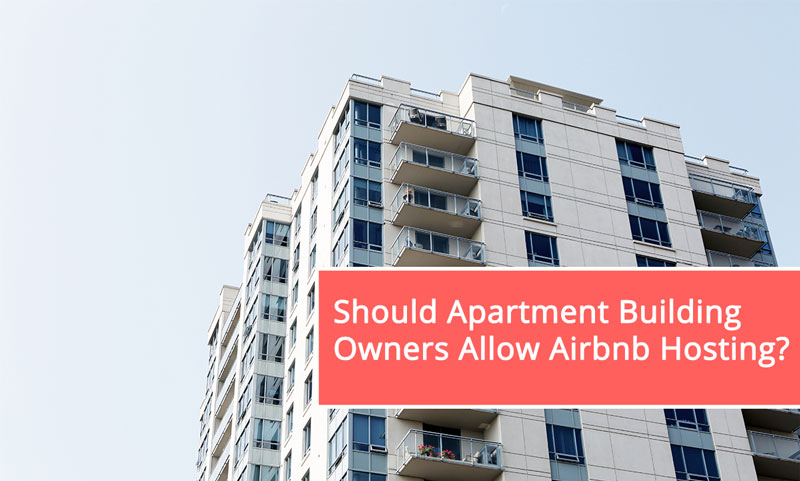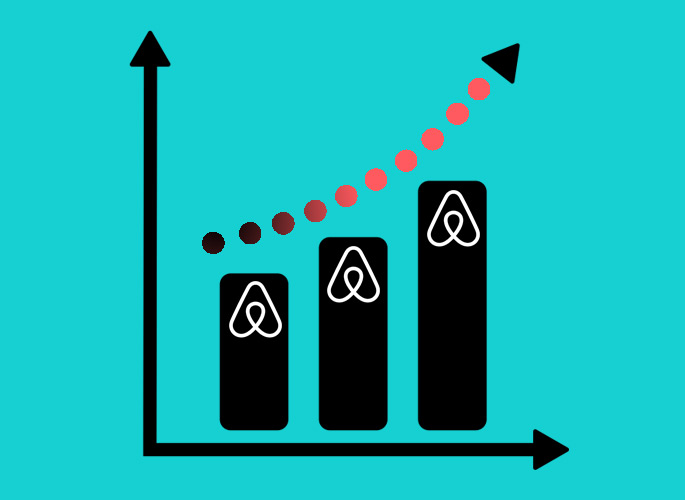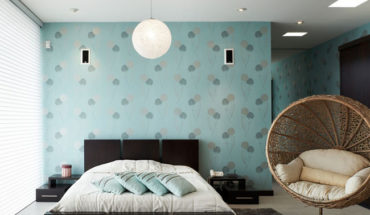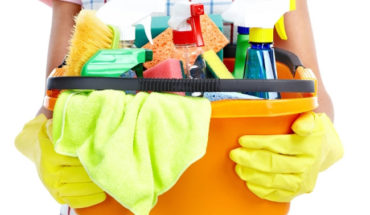
If you’re a landlord in 2017, chances are good that you know what Airbnb is.
You’ve either had tenants who secretly listed your property on Airbnb, or you’re being openly approached by tenants requesting landlord permission to host on Airbnb.
It can be scary as a landlord or building owner and feeling a lack of control over what’s happening in your own buildings.
So should you do host on Airbnb? Maybe.
Here are some important considerations to help you make a more informed choice about putting your apartment building on Airbnb.
Make Sure Airbnb Hosting is Legal in Your City
First things first…stay on the correct side of the law.
A few big cities have recently updated their laws and regulations to clarify what is and isn’t allowed in terms of short term rentals and homesharing (yes, there is a difference between these two).
Short-term rentals are usually defined as a property solely used for renting to guests for less than 30 days at a time.
Homesharing is usually defined as a resident renting out a portion of their primary residence to guests for any length of time.
These two definitions may not be exactly right for how your city may define them, but just take note of two things…that homesharing is for primary residences and short term rentals are dedicated spaces for less than 30 days.
Now, many cities are still in the process of writing legislation or are only starting the conversion to legalize it in their markets.
Airbnb Pro Tip: Check with your local city hall and find out EXACTLY what is currently allowed legally, as well as what’s on the horizon.
Here is helpful article on other legal considerations for Airbnb Hosting.
Give Notice to Tenants on Current Status
 Chances are, your current lease agreements strictly prohibit subletting in any form without expressed written consent on your part.
Chances are, your current lease agreements strictly prohibit subletting in any form without expressed written consent on your part.
If you want to be more strict about Airbnb hosting by renters in your building, then it’s a smart idea to give a friendly notice to your current tenants to remind them of what they signed with you.
The goal is to be explicit that it’s NOT okay to list their unit on Airbnb without your expressed approval.
If you’re open to allowing your current residents try Airbnb hosting, then keep them informed of the process.
You can send a notice out that tenants have approached you about the possibility of allowing subletting or homesharing on Airbnb, but that you want to first find out the legalities from the city and explore any negative implications for the community.
Let the current tenants know that your foremost priority is the safety and comfort of the community and that you are open to feedback about Airbnb hosting.
And until and unless a tenant has expressed written consent from you, they are to comply and abide by the current lease agreement. If the it is currently not legal, state it as such in your notice and invite tenants to let you know if there are violators.
I mentioned negative implications to the community by running Airbnb out of your building…well things to consider are:
- Parking
- Resident Safety
- Noise Levels
- Liability & Property Risk,
- and more
Understand the Airbnb Economics in Your Market
 Look, not all markets are created equal. That means some markets do FAR better than others when it comes to demand for Airbnb listings. (aka travel demand)
Look, not all markets are created equal. That means some markets do FAR better than others when it comes to demand for Airbnb listings. (aka travel demand)
If you’re in a market that is NOT in a core Airbnb market, allowing your tenants to list their units on Airbnb may not present much of a financial bump to your bottom line.
Why does it matter?
Well, if the economics aren’t appealing to your tenant hosts, they do the work.
Knowing the economics also allows you to better communicate with tenants who may have an ignorant, rosy view of things–it’ll definitely make them reconsider their plans given the reality check.
In fact, ask any tenant who approaches you to estimate their Airbnb hosting income and then show it to you to be positive it makes economical sense.
Get the Right Insurance
 Accidents happen, so protect yourself, your property, and your tenants before issues arise.
Accidents happen, so protect yourself, your property, and your tenants before issues arise.
You probably already have insurance in place, but it most likely will not cover liability resulting from your allowing short term rentals on your property.
You MUST talk to your insurance agent to find out what the extra costs are.
If your current insurance provider does not provide coverage options for you that you can add to your existing policies, then talk to an insurance group that specifically offers coverage for this type of business.
You probably have many questions regarding this topics so here is a detailed post about short-term rental insurance.
Start Slow, then Grow
Even after conducting your due diligence, you want to move slowly.
Start off with just one tenant in one unit and try it out for a few months before you allow a second listing.
This will give you time to see what works and needs to be adjusted so that you are maximizing your guests’ experience and your income.
Note any negative issues that need to be addressed like parking, noise, neighbor complaints, etc…
After seeing how the rental performs, take time to decide whether the financial gains outweigh the negatives…if there are any.
Think and Plan Long Term
 If everything is working out with your test unit and you’re considering rolling it out to a larger portion of your units, you don’t want to do that haphazardly.
If everything is working out with your test unit and you’re considering rolling it out to a larger portion of your units, you don’t want to do that haphazardly.
Instead, plan ahead.
Maybe you could position all the homesharing units on a particular side of the building or corner of your property to minimize any potential disturbance of other tenants.
If you have a perfect unit in mind, then you may want to provide an incentive for the current tenants to move out so you free up a unit for your new program.
Then anytime a new vacancy is available within part of your designated homesharing units, you can grow your portfolio of Airbnb rentals.
And if you’re making significant renovations or building ground up, work with your designer to design the necessary home-sharing friendly elements into your property including concierge desks, dedicated entrance, key exchange, lockers, and more.
Have an Exit Strategy
Anytime you allow a tenant to explicitly list your unit on Airbnb, you want to establish a new leasing agreement.
Besides properly assigning the new liability risk to the tenant, you’ll also want to make sure it’s on a month to month lease with mutual opt-out.
If the tenant is not meeting your standards for any reason, you can give them a 30 day notice to get off Airbnb and they have the option to stay under a new long term lease, or to move out.
But why mutual?
With these homesharing units, you can potentially charge more per rent since the tenant has the possibility to earn a side income.
If that homesharing income is taken away or is less than predicted, you don’t want to keep a tenant there who can’t afford to stay there. Freeing the unit up allows you to find someone else who could afford to stay there.
Know Your Tenants Well

Everyone involved needs to be on the same page.
Are they frequently traveling?
Does their tenant history suggest they’re considerate and thoughtful neighbors?
Are they really informed and ready to be Airbnb hosts?
Ultimately, you want to see if becoming an Airbnb host is congruent with their current lifestyle.
If not, then no worries. If there is enough margin, there is the options to bring in an outside professional host.
Some Airbnb Superhosts in your market may be looking to manage more units with the Airbnb Co-Hosting Program, but margins would have to be there in order for all to benefit.
Airbnb’s Friendly Buildings Program
Tracking and auditing funds with each tenant can be difficult and very time consuming.
For those of you who are seriously exploring the possibility of having multiple Airbnb listings on your property, you should definitely see if Airbnb’s Friendly Buildings Program is available in your market. You can also email buildings@airbnb.com to find out and get more information.
By having Airbnb manage the process and using their platform to document and track everything, you minimize the overhead needed to make all this work.
However, because it’s not clear what the exact financial arrangements are through the Airbnb Friendly Buildings Program.
We suspect with this program that you may be trading some profits for convenience and access to their best available hosts which may potentially reduce your homesharing revenue than if you do it on your own, directly with your tenants.
So, should you host on Airbnb?
There’s no denying it…Airbnb is here to stay and they are shaking up the real estate industry.
At the end of the day it’s about gaining enough control over the process over any homesharing activities in building or on your property, and getting some financial gains for the extra work and risks involved.
How worthwhile it will be is largely dependent on the market that you’re in.
The greater the gap between the potential revenue of an Airbnb listing in your market and what a long term lease rate is, the more lucrative the potential for all the parties involved.
Let us know, are you an apartment building owner considering hosting on Airbnb?

✔ How to avoid the BIG mistakes that most hosts make
✔ The secret weapon of all Top 1% Hosts
✔ The pricing strategy used by professionals
✔ How to consistently get gleaming 5-Star reviews
✔ How to free up your time without becoming a "robotic host"
This free training is brought to you by James Svetec an Airbnb Expert who has managed over $1M in bookings & Symon He, the founder of LearnBNB, the #1 Airbnb hosting education blog.
Learn about all of the secrets that professional hosts don't want you to know




Great post guys! Complete but easy to read. Keep the good work!